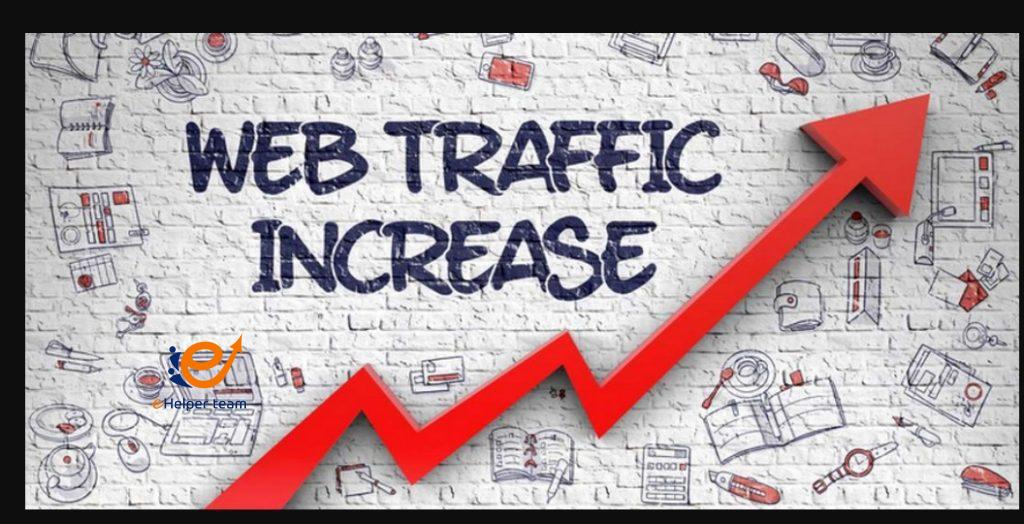What is targeted website traffic?
In the vast landscape of digital marketing, one term that consistently garners attention is “targeted website traffic.” This concept is pivotal for businesses aiming to enhance their online presence, increase conversions, and achieve specific marketing objectives. Targeted traffic refers to visitors who are most likely to engage with your content, products, or services based on their interests and demographic characteristics. This article explores what targeted website traffic is, how it differs from general web traffic, its importance, strategies to increase it, and its overall impact on business success.

Best website traffic generators https://apextraffic.io/blog/best-website-traffic-generators
Defining Targeted Website Traffic
Targeted website traffic consists of users who have a defined interest in what your site offers. Unlike random visitors, these users are considered high-quality traffic because they are more likely to convert — that is, take a desired action on your site, whether it’s making a purchase, signing up for a newsletter, or another predefined action. This type of traffic is the cornerstone of efficient digital marketing, as it focuses on appealing to those who are most likely to contribute to your site’s goals.
The Difference Between Targeted and General Traffic
The main difference between targeted traffic and general traffic lies in relevance and intent. General traffic includes all visitors to a website, regardless of their interest in the site’s offerings. These users might have stumbled upon the site by accident or through less specific internet browsing. In contrast, targeted traffic is composed of individuals who are directed to your site through specific strategies such as keyword targeting, the use of digital ads tailored to their interests, or because they are searching for products your site offers.
Importance of Targeted Traffic
The importance of targeted website traffic cannot be overstated for several reasons:
1. Higher Conversion Rates: Since targeted visitors have a pre-existing interest in your product or service, they are more likely to convert into paying customers or active users.
2. Cost Efficiency: Spending marketing resources on targeted traffic is typically more cost-effective because it yields a higher return on investment (ROI). Each dollar spent brings visitors who are more likely to engage with the site, reducing wasted expenditure on uninterested parties.
3. Improved User Engagement: Targeted traffic is more likely to engage deeply with your content, resulting in longer visit durations and lower bounce rates. This engagement signals to search engines that your website is providing valuable content, which can improve your site’s SEO rankings.
4. Enhanced Brand Loyalty: By attracting visitors who are interested in what you offer, you’re more likely to build a loyal customer base. These customers can turn into brand ambassadors who promote your products or services through word-of-mouth or on social media.
Strategies for Increasing Targeted Traffic
Several effective strategies can be employed to increase targeted traffic to a website:
1. Search Engine Optimization (SEO): Optimizing your website for relevant keywords can help attract traffic from users who are searching for information related to your products or services. This includes both on-page SEO, such as content creation around specific keywords, and off-page SEO, such as building backlinks from reputable sites within your industry.
2. Pay-Per-Click Advertising (PPC): PPC campaigns allow you to place ads on search engines and other platforms, where you only pay when someone clicks on your ad. By targeting these ads to specific demographics or interests, you can attract more qualified visitors.
3. Content Marketing: Creating valuable and relevant content tailored to your target audience can attract visitors organically. This includes blog posts, videos, podcasts, and infographics that address your audience’s interests and pain points.
4. Social Media Marketing: Platforms like Facebook, Instagram, and LinkedIn offer powerful targeting options to reach specific audiences based on demographics, interests, and behaviors. Regular engagement and tailored advertising on these platforms can drive targeted traffic.
5. Email Marketing: By building a list of subscribers interested in your offerings, you can use targeted email campaigns to draw users back to your site with personalized content and offers.
Measuring the Impact of Targeted Traffic
To fully understand the impact of targeted traffic on your business, it’s essential to track key performance indicators (KPIs) such as conversion rates, bounce rates, average session duration, and ROI. Tools like Google Analytics can provide insights into how well your targeted traffic strategies are performing and where there may be room for improvement.
Conclusion
Targeted website traffic is a fundamental element of successful online marketing. By focusing on visitors with a high potential for conversion, businesses can more effectively use their resources, enhance user engagement, and ultimately achieve a higher ROI. Implementing a mix of SEO, PPC, content marketing, social media marketing, and email marketing tailored to your target audience will help you increase both the quantity and quality of your web traffic. As digital landscapes evolve, staying adept at attracting targeted traffic will remain a critical strategy for online business success.





